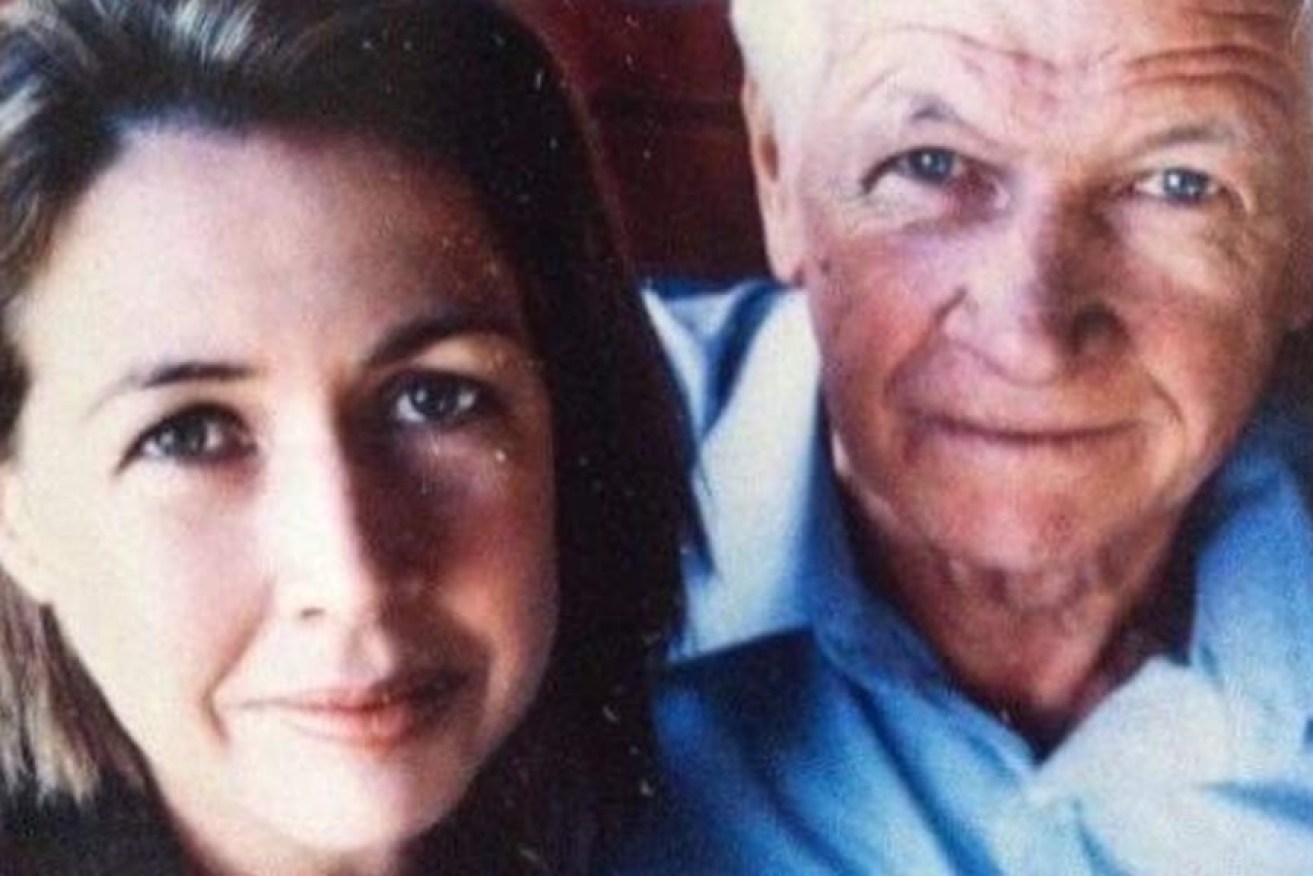Crime, punishment and repeat offenders – by the man wrote the book on it
Ian Davies almost lost his daughter, Shari, to a criminal free on bail – and in the years since, his contribution to public life in this state as a victims’ rights advocate is without equal. So why aren’t our politicians tapping into his knowledge in the youth crime debate, asks Madonna King


One of Queensland's most high profile victims of crime, Shari Davies, with her father Ian. (Photo: Supplied)
For many Gen Xers, it was the day that Brisbane lost its innocence. A 23-year-old beauty therapist, Shari Davies was abducted from the lower level of the King George Square carpark at knife-point, made to drive to a lonely stretch of bushland, brutally raped and left for dead.
If you lived in Brisbane in 1986, you would almost definitely remember the reports that led radio and newspaper and television.
How Shari fought back from stab wounds that covered her body, punctured lungs, and a slit neck.
How the culprit Darren Osbourne was a convicted rapist, who skipped a parole meeting, kidnapping Shari, telling her he had been dying to get out of jail so he could rape again.
How the state prisons minister revealed to the media the name of the suspect and the fact that he had been released from jail only days earlier; allowing, according to some, Osbourne to vanish from his Gold Coast hideout. (After further rapes, he killed a young woman before being caught, and later dying in prison in Western Australia.)
Shari’s father Ian Davies has spent most waking moments since then looking at how we might curb crime. Laws enshrining victims’ rights exist in Queensland because of Ian Davies. Appointed to the Corrective Services Commission, he spent a decade looking at what programs might work, in stemming juvenile crime. As a member of the serious violent offenders committee, he spent nights lying awake, working out what might change the trajectory of a child, who becomes a violent criminal.
On the parole board, he sat in judgment. Should this person be given another chance? Why? What has their rehabilitation looked like? Is the community safe? And with the huge heart of a dad, who almost lost his daughter, the rights of victims were uppermost in his mind.
They still are, as he tries to make sense of the multiple deaths, allegedly at the hand of juveniles in stolen cars, a renewed focus on juvenile recidivism, and a plain disregard for the law, by children as young as nine.
So what does he think?
Ankle bracelets might work, but they can be – and will be – removed by those who are ordered to wear them.
Curfews don’t work, unless officers were able to be stationed outside hundreds of homes.
Rehabilitation should play a bigger role in juvenile sentencing, to try and provide a path back to society for those who find themselves in jail as children.
COVID has made matters worse, he says, because some juveniles have too much time on their hands. They’re out of the education system, and are unable to find jobs because schools haven’t equipped them with the skills they need to hold one. And they’re often looking for thrills.
Once upon a time, that might have been a fun parlour, perhaps on the Gold Coast. Now it’s car theft, and worse.
He’s seen the benefit of wilderness programs, where young offenders up to the age of 25, are taken west and taught to climb cliffs and abseil down them, work out how to catch their dinner, and how much they’d need to eat, how to navigate a canoe and survive on an island. “I saw some terrific changes in some of those young blokes,’’ Ian Davies said yesterday.
Public funds and insurance have put a halt to some of those endeavours.
So have drugs – and this is an issue not being canvassed properly in the current debate.
“The biggest problem we have now is drugs and these kids are finding they are as cheap as chips,’’ he says. A drug problem, enveloping many youths, was driving criminal behaviour.
Others concur. Ask a judge, in a casual encounter. They used to sit in judgment of people who fell foul of the law through alcohol. Now it’s ice, and more.
“The drugs are coming in by the kilogram and as much as they’re finding, they’re not finding,’’ Ian Davies says. “And it’s so cheap. Kids can go and hock something, steal from their parents, and get the drugs – and then the excitement starts. Then they steal a car, go for a burn. Cars are still easy to steal.’’
Drugs have always been a problem. Now they’re THE problem. Offenders are going round and round in a revolving door in and out of jail. “In and out. In and out. In and out. And programs don’t work once they’re in that revolving door.’’
So sensible, coming from someone whose family was shattered by a violent offender who skipped parole; someone who has spent decades looking at rehabilitation, and what might work to stem that crime.
Ian Davies’ contribution to public life in this state – like many who deserve it – is not the subject of honours lists and awards.
But it’s downright lunacy that our politicians are not tapping into his knowledge in the current debate about youth crime.
Who would you believe. Ian Davies? Or a politician?












